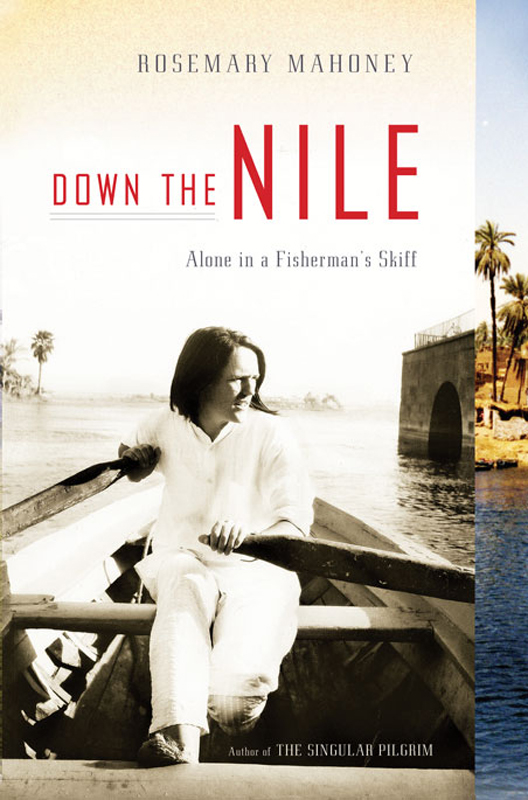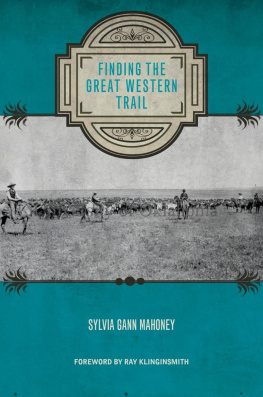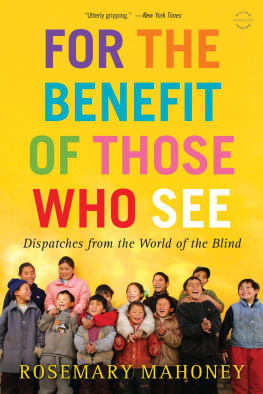Rosemary Mahoney - Down the Nile: Alone in a Fishermans Skiff
Here you can read online Rosemary Mahoney - Down the Nile: Alone in a Fishermans Skiff full text of the book (entire story) in english for free. Download pdf and epub, get meaning, cover and reviews about this ebook. year: 2007, publisher: Little, Brown & Company, genre: Detective and thriller. Description of the work, (preface) as well as reviews are available. Best literature library LitArk.com created for fans of good reading and offers a wide selection of genres:
Romance novel
Science fiction
Adventure
Detective
Science
History
Home and family
Prose
Art
Politics
Computer
Non-fiction
Religion
Business
Children
Humor
Choose a favorite category and find really read worthwhile books. Enjoy immersion in the world of imagination, feel the emotions of the characters or learn something new for yourself, make an fascinating discovery.

- Book:Down the Nile: Alone in a Fishermans Skiff
- Author:
- Publisher:Little, Brown & Company
- Genre:
- Year:2007
- Rating:4 / 5
- Favourites:Add to favourites
- Your mark:
- 80
- 1
- 2
- 3
- 4
- 5
Down the Nile: Alone in a Fishermans Skiff: summary, description and annotation
We offer to read an annotation, description, summary or preface (depends on what the author of the book "Down the Nile: Alone in a Fishermans Skiff" wrote himself). If you haven't found the necessary information about the book — write in the comments, we will try to find it.
Down the Nile: Alone in a Fishermans Skiff — read online for free the complete book (whole text) full work
Below is the text of the book, divided by pages. System saving the place of the last page read, allows you to conveniently read the book "Down the Nile: Alone in a Fishermans Skiff" online for free, without having to search again every time where you left off. Put a bookmark, and you can go to the page where you finished reading at any time.
Font size:
Interval:
Bookmark:

*According to Herodotus, an Egyptian sandstorm could be bad enough to bury an entire army. The Persian King Cambyses sent fifty thousand men into the desert, but, Herodotus wrote, they never returned... As theywere at their midday meal, a wind arose from the south, strong and deadly, bringing with it vast columns of whirling sand, which entirely covered up the troops, and caused them wholly to disappear.
*The result, I was several times told, of Bosnian soldiers having traveledhere with Yavuz Sultan Selims Turkish army in 1517 and mixing with Nubians. In Nubia, the southernmost region of Egypt, Amelia Edwards had been frightened by the sight of these redheads who though in complexion as black as the rest, had light blue eyes and frizzy red hair.
*As you know, the Nile flows from south to north. Since one must travel upriver to reach the south of Egypt, the south is commonly referred to as Upper Egypt and the north, therefore, as Lower Egypt.
*Sonninis assessment of 1777 was blunt: Slavery, and stupidity, its inevitable consequence, have filled the place of power and grandeur. Superstitious ignorance has succeeded to the love of the sciences, to the exercise of the arts; and perfect civilization has disappeared, to make way for brutality and savageness of manners.
*The journalswere never published and have since been lost.
*French Egyptologist Auguste Mariette.
*He said he went. In modern times, there has been much debate about whether Herodotus ever set foot out of Greece.
*French actress Marie Dorval.
Copyright 2007 by Rosemary Mahoney
All rights reserved.
Little, Brown and Company
Hachette Book Group
237 Park Avenue
New York, NY 10017
Visit our Web site at www.HachetteBookGroup.com.
The Little, Brown and Company name and logo are trademarks of Hachette Book Group, Inc.
First eBook Edition: July 2007
Excerpts from Flaubert in Egypt: A Sensibility on Tour, by Gustave Flaubert, translated by Francis Steegmuller, are reprinted with permission of McIntosh & Otis, Inc. Copyright 1972 by Francis Steegmuller.
ISBN: 978-0-316-00732-0
FOR MADELEINE STEIN
ALSO BY ROSEMARY MAHONEY
The Early Arrival of Dreams
A Year in China
Whoredom in Kimmage
The World of Irish Women
A Likely Story
One Summer with Lillian Hellman
The Singular Pilgrim
Travels on Sacred Ground
O N THE DAY that I hoped to buy a rowboat in Luxor, Egypt, I was awakened, as I had been every morning in Luxor, by a Koranic antiphony drifting from the Islamic boys school next door to my hotel. With all the zeal of a Baptist preachers, a young boys amplified voice shrieked repeatedly in Arabic, There is no God but God, and Muhammad is his witness! and a shrill chorus of his schoolmates howled the words back at him. I got out of bed and went to thewindow at 7:00 a.m. the glass was already warm as an infantsforehead and discovered that during the night many colorful cloth banners had been strung above the corniche, Luxors Nilefront boulevard. Inhand-fashioned Arabic characters, the banners read, Welcome Mister President of the Government, Muhammad Hosni Mubarak, the Leader of Our Victorious and Progressive Destiny. Scores of teenage Egyptian soldiers in black uniforms, woolen berets, and white plastic spats lined the avenue in theninety-eight-degree heat, more or less at attention, rifles at their sides, evidently awaiting the presidents arrival. Profiting from a police barricade, the usually hectic street was, for once, mercifully quiet. Across the glittering ribbon of the Nile, the Temple of Hatshepsut and the Valley of the Kings lay blanketed in the pink morning light.
I dressed and went downstairs to the lobby, where the hotel manager and two of his employees sat shoulder to shoulder on a couch before a flickering television. All three men wore white turbans and gray gallabiyas, the traditional Egyptian gown, and, in one of the more baffling manifestations of traditional Egyptian fashion, heavy woolen scarves wound around their necks, as if against an arctic wind. No matter the time of day, the lobby of this hotel was always exceptionally dark, and through the gloom the three men looked like consumptives recuperating in a sanatorium. They were watching an American film in which jeering, sweaty-faced Confederate soldiers were busy abusing a group of morose black slaves.
With an apology for interrupting their entertainment, I asked the hotel manager why President Mubarak was coming to Luxor that day. Without looking away from the television the manager replied, To open new hospital and sex tomb.
I studied his long brown nose, his luxurious black mustache. Surely I had misheard him. Sorry, I said, to open a what?
Hospital and sex tomb, he said dully, scratching his chin.
The hospital sounded likely enough, but the idea of a sex anything being publicly celebrated by the Egyptian president was preposterous. In this Islamic nation, sex, strictly forbidden outside marriage, was not a subject for public discourse or civic celebration. Human flesh, particularly womens, was to be concealed, and though in Egypt the assumption of the veil at puberty was officially a matter of individual choice, many Egyptian women wore the hijab, the veil that fully concealed the head and neck, and a surprising number wore the more forbidding niqab, a drape that covered mouth, nose, forehead, sometimes even eyes. Chaste Egyptian women were reluctant to have their photograph taken, because multiplying and displaying their image in this way was considered unseemly. Before my first trip to Egypt, I had been counseled to keep my arms and legs covered, not to wear shorts, and never to touch a man in any way except to shake hands. I had been endlessly informed by people who had experience in the matter that purity, chastity, and piety were Egypts prevailing sentiments, and that foreign women who came to Egypt and dressed in a provocative way (there are, in fact, many who do) would be considered promiscuous, unprincipled, fair game for harassment and disrespect.
And yet, having spent a total of three and a half months in Egypt on three separate visits, I could not deny that, although I always wore long trousers and long-sleeved shirts and conducted myself as decorously and seriously and modestly as my reasons for coming here would allow, I had never visited any country in which sex had so often arisen as a topic of conversation; had never witnessed more bald nudity (including not one but two men openly masturbating on city streets, dozens of bare breasts proffered at the howling mouths of infants, men and children freely relieving themselves wherever the need struck them); had never received so many offhand proposals of marriage and professions of love from mustachioed strangers, more swaggering requests for a dance or a kiss, more offers of romantic dinners; had never been the target of more wolf whistles and catcalls and distinctly salacious whispers emanating from behind dusty clumps of shrubbery. Nowhere else in the world had a smiling stranger approached me and a friend on a busy street and said, I want fuck you, with the idle geniality one might extend in saying, Looks like rain.
On the hotel television a mounted Dixie soldier rattled his musket at a handsome slave and jeered, Git workin, boy! This aint no holiday.
The three Egyptians stared at the screen in slack-jawed wonder. Their bulky turbans were silvery in the electric blue twilight. I saw that it would be futile to try to get to the bottom of what the hotel manager was telling me about the presidents visit to Luxor and went out the front door into the stunning Egyptian sunlight.
Font size:
Interval:
Bookmark:
Similar books «Down the Nile: Alone in a Fishermans Skiff»
Look at similar books to Down the Nile: Alone in a Fishermans Skiff. We have selected literature similar in name and meaning in the hope of providing readers with more options to find new, interesting, not yet read works.
Discussion, reviews of the book Down the Nile: Alone in a Fishermans Skiff and just readers' own opinions. Leave your comments, write what you think about the work, its meaning or the main characters. Specify what exactly you liked and what you didn't like, and why you think so.









